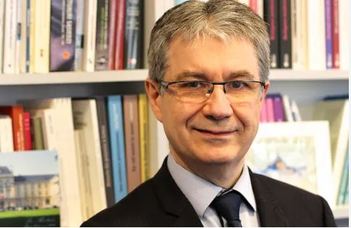Public lectures by Christophe Prochasson

10:00 Is Socialism a Science? | Le socialisme est-il une science?
There are countless historical works highlighting the privileged links, not to say the claimed confusion, between science and socialism. We now know that, contrary to Engels's famous formula of excluding "utopian socialism" from the scientific horizon adopted by Karl Marx's modernised socialism, socialism developed mainly on a "scientific" basis from the outset. The controversial and ambivalent relationship between science and socialism is well known and often studied. However, it is still necessary to clarify the scientific regimes to which socialism leaned, in different places and at different times, and under the influence of contrasting environments. Without reducing the history of the relationship between science and socialism to a succession of stages, each marked by different forms of scientific lucidity, it is possible to distinguish three paradigms: the first belongs to the physical-mathematical sphere, the second is attached to the natural sciences, and the third almost merges with sociology.
Les tableaux historiques mettant en évidence les liens privilégiés pour ne pas dire la confusion revendiquée entre science et socialisme ne se comptent plus. On sait désormais qu’à l’encontre de la fameuse formule d’Engels écartant un « socialisme utopique » d’un horizon scientifique adopté par le socialisme modernisé de Karl Marx, le socialisme se développa principalement, dès ses origines, sur un socle « scientifique ». Les épousailles controversées et ambivalentes entre science et socialisme sont bien connues et souvent étudiées. Il n’en reste pas moins nécessaire de préciser les régimes scientifiques auxquels le socialisme s’adossa, en différents lieux comme en différents temps et sous l’emprise d’environnements contrastés. Sans réduire l’histoire des rapports entre science et socialisme à une succession d’étapes, chacune marquée par des formes différentes de lucidité scientifique, il est possible de distinguer trois paradigmes : le premier appartient à la sphère physico-mathématique, le deuxième est attaché aux sciences naturelles, le troisième se confond presque avec la sociologie.
14:00 Social History and History of the Labour Movement: Competiotion or Complementarity | Histoire sociale et histoire du mouvement ouvrier : concurrence ou complémentarité
Interest in the social aspects of the history of industrialisation and then deindustrialisation in the 19th and 20th centuries, dominated by the formation and subsequent weakening of the 'working class', has long been associated with the study of the organisational structures of the 'workers' movement' (parties, trade unions, associations, cooperatives, etc.). A historiography long dominated by different approaches more or less inspired by Marxism, "working-class history" then developed as a social history with ambitions that went beyond the analysis of the construction of a "class consciousness". This development now includes studies dealing with the place of the worker in the history of science and technology, questions of working-class health and working-class conditions, and even cultural problems or issues relating to lifestyles and social interaction. At the risk of losing the political dimension of a social class that has long been central to the identity of the 'left'...
L’intérêt pour le volet social de l’histoire de l’industrialisation puis celle de la désindustrialisation aux XIXème et XXème, dominé par la formation puis l’affaiblissement de la « classe ouvrière », a longtemps été associé à l’étude des structures d’organisation du « mouvement ouvrier » (partis, syndicats, associations, coopératives, etc). Historiographie longtemps dominée par différentes approches plus ou moins inspirés par le marxisme, « l’histoire ouvrière » s’est ensuite développée comme une histoire sociale aux ambitions dépassant l’analyse de la construction d’une « conscience de classe ». Cette évolution intègre désormais des études traitant de la place de l’ouvrier dans l’histoire des sciences et des techniques, des questions de la santé ouvrière et des conditions ouvrières voire de problèmes culturels ou relevant des modes de vie et de sociabilités. Au risque de perdre la dimension politique d’une classe sociale qui a longtemps occupé le cœur de l’identité de la « gauche »…
Language of the talks: French
Venue: Main building, 2th floor, 247

